Filter by
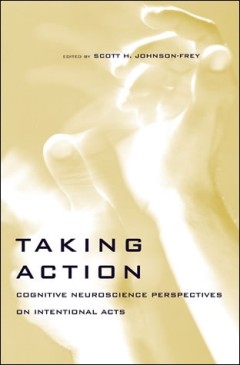
Taking Action: Cognitive Neuroscience Perspectives on Intentional Acts
A Bradford book."Recent cognitive neuroscientific research that crosses traditional conceptual boundaries among perceptual, cognitive, and motor functions in an effort to understand intentional acts. Traditionally, neurologists, neuroscientists, and psychologists have viewed brain functions as grossly divisible into three separable components, each responsible for either perceptual, cognitive, …
- Edition
- -
- ISBN/ISSN
- 9780262276337
- Collation
- 1 online resource (viii, 413 pages, 12 unnumbered pages of plates) :illustrations (some color)
- Series Title
- -
- Call Number
- -
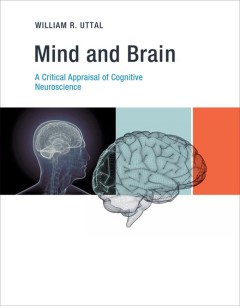
Mind and brain :a critical appraisal of cognitive neuroscience
Here, William Uttal offers a critical review of cognitive neuroscience, examining both its history and modern developments in the field. He pays particular attention to the role of brain imaging in studying the mind-brain relationship.OCLC-licensed vendor bibliographic record.
- Edition
- -
- ISBN/ISSN
- 9780262298902
- Collation
- 1 online resource (xxviii, 497 pages) :illustrations
- Series Title
- -
- Call Number
- -
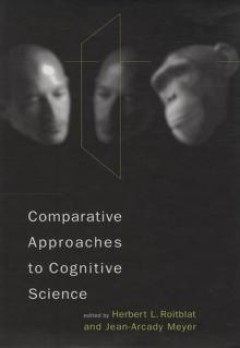
Comparative Approaches to Cognitive Science
"A Bradford book."OCLC-licensed vendor bibliographic record.
- Edition
- -
- ISBN/ISSN
- 9780262282512
- Collation
- 1 online resource (vii, 533 pages) :illustrations.
- Series Title
- -
- Call Number
- -
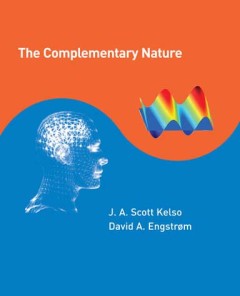
The Complementary Nature
"A Bradford book."Why do we divide our world into contraries? Why do we perceive and interpret so many of life's contraries as mutually exclusive, either/or dichotomies such as individual~collective, self~other, body~mind, nature~nurture, cooperation~competition? Throughout history, many have recognized that truth may well lie in between such polar opposites. In The Complementary Nature, Scott …
- Edition
- -
- ISBN/ISSN
- 9780262316286
- Collation
- 1 online resource (xviii, 317 pages) :illustrations
- Series Title
- -
- Call Number
- -
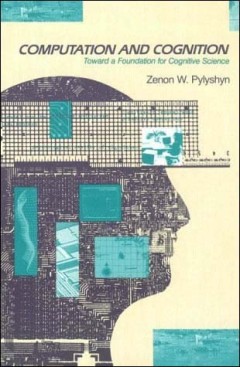
Computation and Cognition: Toward a Foundation for Cognitive Science
The question, "What is Cognitive Science?" is often asked but seldom answered to anyone's satisfaction. Until now, most of the answers have come from the new breed of philosophers of mind. This book, however, is written by a distinguished psychologist and computer scientist who is well-known for his work on the conceptual foundations of cognitive science, and especially for his research on ment…
- Edition
- -
- ISBN/ISSN
- 9780262281997
- Collation
- 1 online resource (xxiii, 292 pages) :illustrations
- Series Title
- -
- Call Number
- -
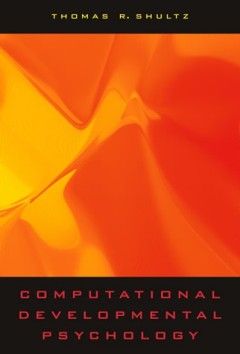
Computational Developmental Psychology
"A Bradford book."An overview of the emerging discipline of computational developmental psychology, emphasizing the use of constructivist neural networks.Despite decades of scientific research, the core issues of child development remain too complex to be explained by traditional verbal theories. These issues include structure and transition, representation and processing, innate and experienti…
- Edition
- -
- ISBN/ISSN
- 9780262303033
- Collation
- 1 online resource (338 pages)
- Series Title
- -
- Call Number
- -
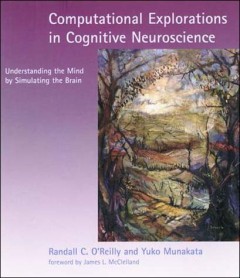
Computational Explorations in Cognitive Neuroscience: Understanding the Mind …
"A Bradford book."The goal of computational cognitive neuroscience is to understand how the brain embodies the mind by using biologically based computational models comprising networks of neuronlike units. This text, based on a course taught by Randall O'Reilly and Yuko Munakata over the past several years, provides an in-depth introduction to the main ideas in the field. The neural units in th…
- Edition
- -
- ISBN/ISSN
- 9780262280907
- Collation
- 1 online resource (xxvii, 504 pages) :illustrations
- Series Title
- -
- Call Number
- -
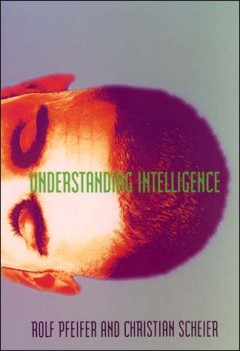
Understanding Intelligence
Researchers now agree that intelligence always manifests itself in behavior - thus it is behavior that we must understand. An exciting new field has grown around the study of behavior-based intelligence, also known as embodied cognitive science, "new AI," and "behavior-based AI."" "Rolf Pfeifer and Christian Scheier provide a systematic introduction to this new way of thinking about intelligenc…
- Edition
- -
- ISBN/ISSN
- 9780262256797
- Collation
- 1 online resource (xx, 697 pages) :illustrations
- Series Title
- -
- Call Number
- -
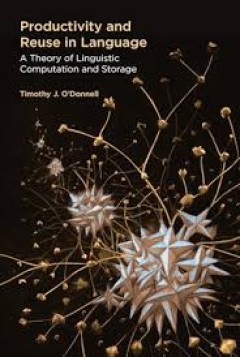
Productivity and Reuse in Language: A Theory of Linguistic Computation and St…
"Language allows us to express and comprehend an unbounded number of thoughts. This fundamental and much-celebrated property is made possible by a division of labor between a large inventory of stored items (e.g., affixes, words, idioms) and a computational system that productively combines these stored units on the fly to create a potentially unlimited array of new expressions. A language lear…
- Edition
- -
- ISBN/ISSN
- 9780262326803
- Collation
- 1 online resource (xii, 337 pages) :illustrations
- Series Title
- -
- Call Number
- -
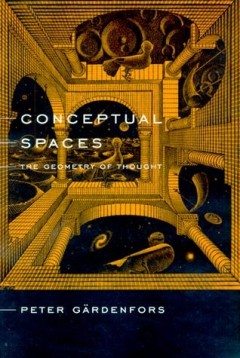
Conceptual Spaces: The Geometry of Thought
Within cognitive science, two approaches currently dominate the problem of modeling representations. The symbolic approach views cognition as computation involving symbolic manipulation. Connectionism, a special case of associationism, models associations using artificial neuron networks. Peter Gärdenfors offers his theory of conceptual representations as a bridge between the symbolic and conn…
- Edition
- -
- ISBN/ISSN
- 9780262273558
- Collation
- 1 online resource (x, 307 pages) :illustrations
- Series Title
- -
- Call Number
- -
 Computer Science, Information & General Works
Computer Science, Information & General Works  Philosophy & Psychology
Philosophy & Psychology  Religion
Religion  Social Sciences
Social Sciences  Language
Language  Pure Science
Pure Science  Applied Sciences
Applied Sciences  Art & Recreation
Art & Recreation  Literature
Literature  History & Geography
History & Geography